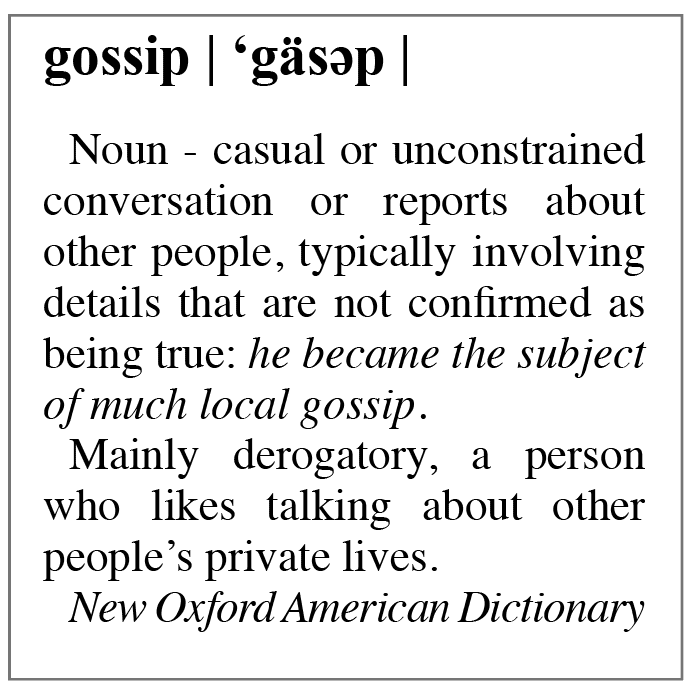By Gretchen Wehmhoff
A little over four years ago I was eating lunch with a friend in a local restaurant. A couple walked by and I complimented the woman’s outfit. It was bright, festive and flowing. A perfect summer tunic. That of course started a small conversation when somehow the man took it on a short, and undesired, political tangent.
“Well, Obama is gonna run for third term,” he said with authority.
Now you and I know that can’t happen.The Constitution is pretty clear. U.S. presidents are limited to two full terms. This man seemed convinced it was a real problem.
The first thing you can do to shut down a conversation is to tell someone they are wrong. The teacher in me came out. The best way to turn him around was not by my words correcting him, but by his own thoughts. So I decided to help him with his critical thinking skills.
“Really, where did you hear that? I hadn’t heard this,” I asked.
“It was on the internet, one of the sites I follow.”
I know. Cliche concept, the internet.
“That’s interesting,” I appeared to ponder, “I always thought they could only have two full terms.”
“Well,” he pulled up his belt and shifted his weight. “That’s what I hear.”
“Do you remember where you read it? I’d like to take a look.”
“Well, maybe I’d better read it again to make sure,” he said.
“Yeah,” I replied. “I’m going to look it up, too.”
We said our goodbyes, wished each other a good day and the brief meeting was over. No burst egos and no large political argument. Just a moment of respect and a gentle assist.
On the large scale, this man had been a victim of gossip. Someone, or some source he trusted, told him something that was not correct. In his own circle of associates, that piece of misinformation became gossip and started to spread.
Gossip isn’t new to civilization. The word itself dates back to Old English, then transferred to meaning “idle talk” in the 17th Century.
Gossip creates tough situations for children. We’ve seen multiple sad stories where gossip transferred to bullying. One person or a group starts it, others take note. Someone gets hurt –
often seriously.
Gossip can create loneliness. Seeking friendship morphs into a terrifying act of self-disclosure in a community or workplace that gravitates towards gossip. Will your new friend allow you to talk things out without judgment? Or might they be ready to share your private information with others. Another wall surrounds folks who really try to stay out of gossip circles and avoid idle talk, ultimately avoiding listening to a lonely heart in order to stay detached. How does someone know who to safely talk to besides dialing 988?
In my communication classes with UAA, I cover a few weeks of self-disclosure and listening. In the lesson we discuss different types of “non-listening” such as selective listening, defensive listening, insensitive listening and the scariest of all – ambushing.
Ambushing is listening carefully only to use the information later in an attack. On a practical side, litigators use ambushing during cross-examination. On a sad side, an insensitive listener might use the information to add fuel to the echo chamber of gossip – or worse, use the information against someone.
As a journalist, it is not unusual to have folks want to report something that is wrong and needs to be covered. In most cases, the person sharing the information may have a valid case, but it makes it difficult to cover the story without more points-of-view. There are also misinformed folks anxious to find something to take down an adversary. In journalism, spreading rumors, especially in print, can get you in some real trouble.
Libel is printing or publishing something that is untrue and negatively impacts a person or their livelihood. Slander is saying something or spreading rumors that negatively impact a person’s private or professional life whether through damaging reputations or financial blocks..
Slander and gossip are toxic siblings.
Skagway is like most American small towns, actually, like most global small towns. There are conversations that call folks to action, and idle talk that causes the destruction of a tight knit community; leaving some members feeling ostracized or unwelcome. There is a solid majority of folks in the community who appreciate the network of neighbors, businesses, school events and festivities. They love the beauty and quiet of winter and the vast outdoors. They support smooth sailing in turbulent times, understanding that staying together is the best survival. These folks are the foundation of tolerance, growth and wisdom.
When I was teaching high school, I might hear a comment in the faculty lounge about a “troublemaker” or “spoiled brat.” However, when that student came to my room, I didn’t experience those traits. We started our own relationship and I was rarely let down by showing respect to that child. I’ve used that same attitude as I have learned to love Skagway.
Coming to Skagway nearly five years ago, I learned quickly to pick and choose the information based on whether or not it was relative to a story. If someone tells me “that person drinks too much” or “that person doesn’t pay their bills,” I quickly decide if it has anything to do with my story. It usually doesn’t.
A journalist asks questions to get beyond the suppositions and rumors. They ask questions to get the truth. Perhaps that’s a good idea. Maybe asking people directly, honoring their story is a good way to slow the gossip.
What do you want to know? Share a cup of coffee and ask – sincerely, of course.





Leave A Comment